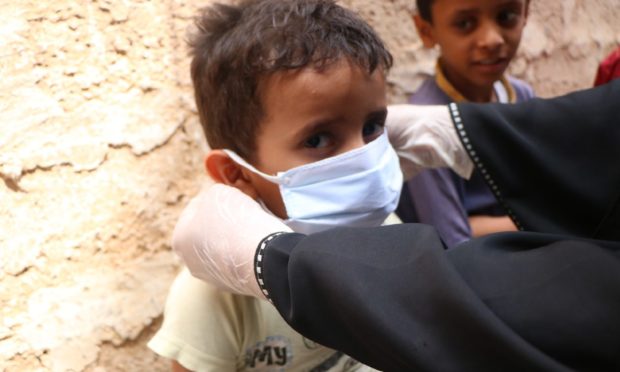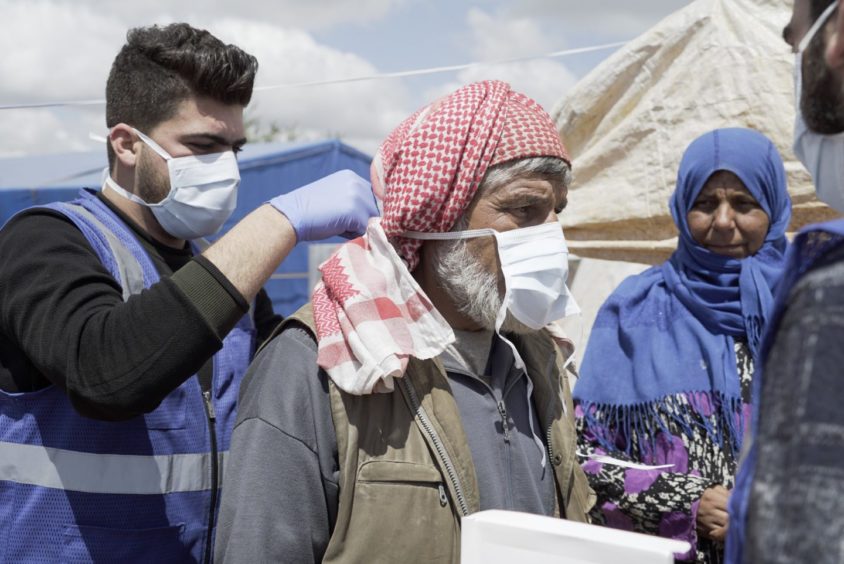The Covid-19 pandemic is pushing some of the world’s most fragile countries towards “catastrophe” as virus cases and deaths go “chronically underreported”, a new hard-hitting UK aid agency report has said.
Released by the Disasters Emergency Committee’s (DEC) coalition, which is a collection of the UK’s leading aid agencies, the report finds the pandemic has worsened the humanitarian situation in states such as Syria, Yemen and South Sudan – with aid workers on the ground saying they expect it to deteriorate further in the coming months.
The report covers six of the world’s most fragile states, including Afghanistan, the Democratic Republic of the Congo (DRC), Somalia, South Sudan, Syria and Yemen, while also reviewing the situation in the Rohingya refugee camps in Bangladesh.
It also claims virus detection is being hampered by “minimal testing” as well as stigma and fear – with Afghanistan carrying out just 400 tests per day for a population of 40 million in November.
Graeme McMeekin, DEC Scotland’s spokesman for the Coronavirus Appeal and the head of Tearfund Scotland, said: “People living in places made perilous by conflict, violence and climate disasters are coping with the coronavirus pandemic as best they can, but the odds are stacked against them.
“The knock-on effects of the pandemic have crippled economies, making the world’s poorest people even poorer.
“There is a real fear for our colleagues around the world that they may have to face agonising decisions to re-prioritise which life-saving programmes should be funded and which of the most vulnerable people should receive humanitarian relief.
“Without continued support, many lives will be lost – not just from Covid-19 itself, but from the economic impact of the virus.”
A survey of senior aid workers found that almost 98% agreed or strongly agreed that the pandemic had worsened the humanitarian crisis in their respective countries, with 73% saying it is the worst it has been in the last 10 years.
A further 96% said the economic impact of Covid-19 had affected people’s ability to buy food and other essentials, while 83% agreed that, without increased funding, thousands are likely to die from hunger in 2021.
Aid workers in South Sudan and Yemen also reported that parts of those countries are “on the brink of famine”.
While Afghanistan and DRC are currently deemed “at risk” due to the economic impact the pandemic has inflicted on those states.
Vaccine delivery in all the most affected countries is anticipated by aid workers to be “challenging and slow” and will not be a quick-fix for the ravages caused by effects of the virus on vulnerable communities.
The report states that “continued investment” in tackling Covid-19 through prevention, suppression and treatment measures such as delivery of water, sanitation and hygiene services will help alleviate current and future waves of the virus as well as other disease outbreaks.
Since its launch in July, the DEC Coronavirus Appeal, which focuses on helping refugees and displaced people in the seven places covered by the report, has raised £36 million – including £10m in aid match funding from the UK Government.
The report also provides examples of how DEC charities used funds raised by the appeal during the first three months (July-October 2020) of the DEC’s 18-month pandemic response.
Mr McMeekin added: “Unprecedented levels of need lie ahead, but funds to provide humanitarian assistance are and will continue to make a direct and practical difference in people’s lives.”
The DEC includes 14 UK aid charities such as the British Red Cross, Christian Aid, Islamic Relief, Oxfam, Save The Children and Tearfund Scotland.

